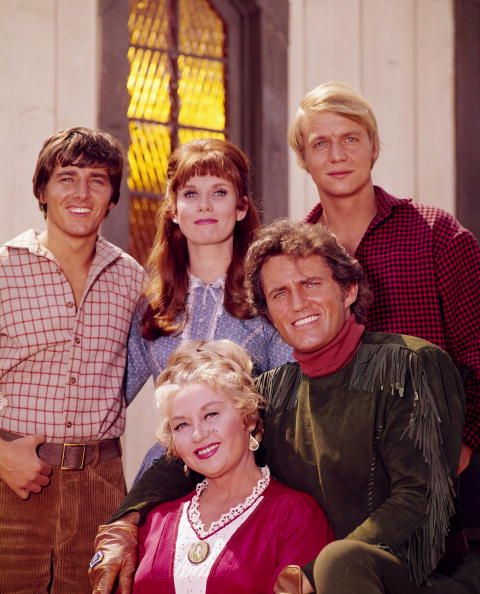
“Oh, It Must Be Love”: A Timeless Echo of First Affection
In an era defined by evolving sounds and cultural shifts, the year 1971 offered a particular brand of musical innocence, and few captured its essence quite like Bobby Sherman. His single, “Oh, It Must Be Love,” a heartfelt exploration of nascent romantic feelings, resonated deeply with audiences, climbing to a respectable #35 on the Billboard Hot 100 chart upon its release. This wasn’t a record-breaking smash, perhaps, but its gentle ascent spoke to a quiet, enduring appeal, cementing its place as a cherished memory for many who were navigating the tender complexities of young love in that burgeoning decade.
For those of us who remember the crackle of AM radio and the anticipation of hearing our favorite tunes, Bobby Sherman was more than just a pop star; he was an embodiment of the earnest, wholesome charm that permeated much of the popular culture of the late 1960s and early 1970s. With his boy-next-door good looks and a voice that exuded sincerity, Sherman had already charmed his way into countless hearts through his roles on television shows like Here Come the Brides and Getting Together. This pre-existing connection with his audience undoubtedly amplified the impact of “Oh, It Must Be Love,” as listeners felt they were hearing sentiments from a trusted, familiar voice.
The story behind “Oh, It Must Be Love” is less about dramatic narratives and more about the universal experience it encapsulates. Penned by the talented songwriting duo of Toni Wine and Irwin Levine, the song doesn’t delve into grand declarations or tumultuous passion. Instead, it paints a delicate picture of the dawning realization of love – those subtle, yet profound, shifts in emotion that signify something truly special is taking root. It speaks to the feeling of an accelerated heartbeat, the mind constantly drifting to another, and the overwhelming sense of joy that accompanies these novel sensations. It’s the quiet “aha!” moment when a casual fondness transforms into something undeniably deeper.
What makes “Oh, It Must Be Love” particularly resonant, even today, is its universal theme. While the song is steeped in the sonic aesthetics of its time – the gentle acoustic guitar, the light orchestral flourishes, and Sherman’s signature smooth delivery – the emotional core remains timeless. It’s a song about vulnerability and the thrilling uncertainty of new affection. It doesn’t promise eternal bliss or intense drama; rather, it beautifully captures that fragile, beautiful stage where one begins to acknowledge the undeniable pull of another person. For many, it evokes memories of first crushes, of shy glances exchanged across a crowded room, of fumbling conversations that felt monumental, and of the exhilarating fear of admitting such profound feelings, even just to oneself.
Listening to “Oh, It Must Be Love” today is akin to opening a forgotten photo album, each note a sepia-toned snapshot of a simpler time. It reminds us of an era when pop music often leaned into innocence and genuine emotion, providing a soundtrack to the everyday dramas and joys of youth. It wasn’t about flashy production or complex narratives; it was about connecting with an honest feeling. The song, featured on his album of the same name, “Oh, It Must Be Love,” became one of the defining tracks of Sherman’s later career, further solidifying his image as a purveyor of heartfelt, wholesome pop. It’s a gentle reminder that sometimes, the most profound emotions are found in the simplest of observations, and that the first blush of love, in all its tentative glory, truly is a feeling that must be love.